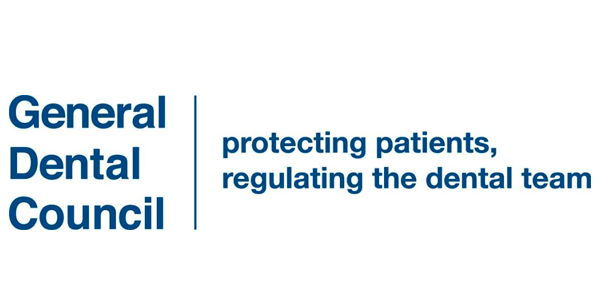So you have a tooth gap and you’re finding it embarrassing? Or, maybe you have a denture you can’t stand?
Let’s talk dental implants!
What are Dental Implants?
A tooth implant is the closed you can get to having your natural tooth back. It is a titanium screw that acts as the root of the tooth, which is placed into the socket of the missing tooth. A porcelain crown, bridge or even a denture is placed on the top of the implant to create a natural looking finish.
What’s good about them?
- Dental implants restore chewing function. No more worrying about your teeth coming loose when chewing or even finding it difficult to chew with a gap!
- They are the the closest you can get to a natural tooth.
- They do not damage your natural teeth.
- Eliminate irritated and painful gums.
- Dental implants can improve your speech by eliminating or reducing the “fullness” of full or partial dentures.
- Dental implants help stop the progressive bone loss by mimicking the roots of natural teeth.
Are dental implants safe? How long will they last?
Dental implants are well established and have a 98-99% success rate. They are a “tried and tested” treatment and 90% of modern implants last for 15 years.
Who can place dental implants?
Any dentist can place dental implants as long as they follow the standards and guidelines.If you want the best results we highly recommend you look for a dentist who is both qualified and experienced in placing dental implants.
What are the Different Types of Implants?
There are basically two types of dental implants.
The first one is subperiosteal or the implant that is installed under the gums but on top of the jaw bone, and the other one is the endosteal or the implant that is installed within the bone.
Subperiosteal implants are no longer in use as they are not stable and were not known to give long term results.
How do you know if I am suitable for dental implants?
Before going ahead with your treatment, a 3D scan (CBCT) and x-ray will be needed. This will enable our dentists to view the bone levels and the health of your teeth. The scan and x-ray will be checked by an implant qualified dentist who will create a treatment plan for you.
What is the process and does it hurt?
If you have a tooth that needs extracted, this will be done and left to heal for 6-8 weeks. A CBCT scan will then be taken of your teeth and a treatment plan will be done for you. Dont worry! We won’t leave you with a gap! A temporary denture or bridge can be placed for the healing period.
On the day of the placement, you will be numbed using local anaesthetic. The appointment length will depend on how many implants are being placed and if you require any sinus lifts and bone grafts.
The surgeon will place your implant and you will be left with a temporary bridge or denture for 3-6 months. You will them come back to the practice and the crown/bridge/denture will be placed.
There may be some discomfort after the treatment. Most patients report it feeling tender but with the use of general painkillers it is kept at bay.
Click here to find out more about Implants
How do I care for a dental implant?
Cleaning around an implant is no more difficult to clean than your natural teeth. There are areas that may require some extra cleaning but all of this will be explained to you once the implant has been placed. Make sure you mention to your dentist that you have an implant as you will need to have it checked once a year.
Can I get implants if I have had gum disease in the past?
Yes, providing you keep the gums clean and attend regular hygiene appointments. This will help prevent the gum disease returning.
Do I have to have an implant for each missing tooth?
Only if you are having a single tooth replaced. You can have one implant that can hold 2-3 teeth or you can have 4 implants that can hold a denture which looks like your full set of natural teeth.
What happens if the implant fails?
This is quite rare. If the implant fails during the healing period then it can be removed and it will heal. After healing this can be tried again with bone grafts if needed or you can always discuss other treatment options at this stage.
What is bad about implants?
Even Though the implant procedure can be done in a few hours under local anaesthetic, it is still a surgery. Like any surgery things can go wrong.
There is a risk of infection, bleeding, complications such as the implant not taking to the bone or even last minute bone grafts. There may be nerve, sinus or nasal cavity injuries.
Your dentist will need to assess your health before going ahead with the procedure.
Why would I need a bone graft?
When you lose a tooth or suffer gum disease, the bone will shrink. This will mean there may not be enough bone for the implant to be placed in to. Other health issues such as Osteoporosis may mean the bone is weakened and a bone graft will be required.
What can I expect to pay for an implant?
Implants can start from £1800.00 for a single implant and crown. You will need to be aware of other costs such as.
CBCT scans £180.00 (from)
Sinus lifts £400.00 (from)
Bone graft £300.00 (from)
Temporary bridge or denture £400.00 (from)
Why are implants so expensive?
Implants themselves are not greatly expensive. It’s not just the implant you will pay for. You are paying for the experienced dentist. Implant dentists will pay around £5000.00 to train in this specialised area. Then you have the dental nurses who are trained in implant nursing. You have the cost of running the surgery, the equipment needed and materials. The practice may use a 3D scanner to take the impressions, this bit of technology alone costs £3000.00
Despite the above factors, implants are still the best option if you are waiting a permanent solution for a lost tooth. The success rate is over 90%.
Are Dental implants worth the cost?
Most, if not all dental professionals would say that dental implants are definitely worth the cost. Simply because with this procedure, you are getting the best. You could even say that it is only second to being able to regrow your own teeth.
Simply put, there is no other alternative to date that can beat dental implants when it comes to functionality and aesthetics.
Dental implants are known to be very stable, they are made from durable titanium they can withstand chewing and bite forces far better than dentures or other alternatives.
What’s more, many consider the cost of dental implants as an investment simply because they can actually help preserve your facial appearance as well as your ability to eat and talk properly over the course of two to three decades.
How do I decide which practice to choose?
Do your research! Just because a practice is close to home or is cheap doesn’t mean it is necessarily the right place to go. Go for your consultation and compare the information given and have a look around the practice to see if you like it. Find out the name of the implant dentists and have a look at his training and experience. Dental practices will expect you to do this so don’t worry about telling them if you have had consultations elsewhere.






